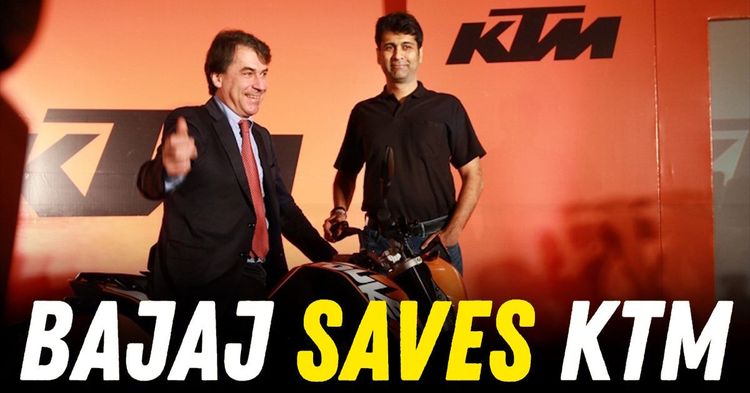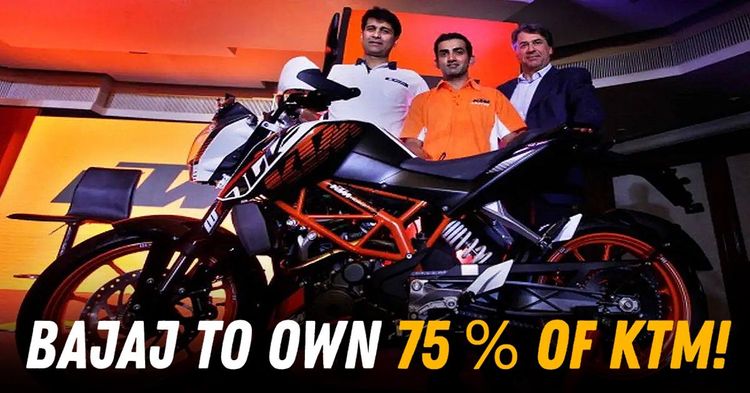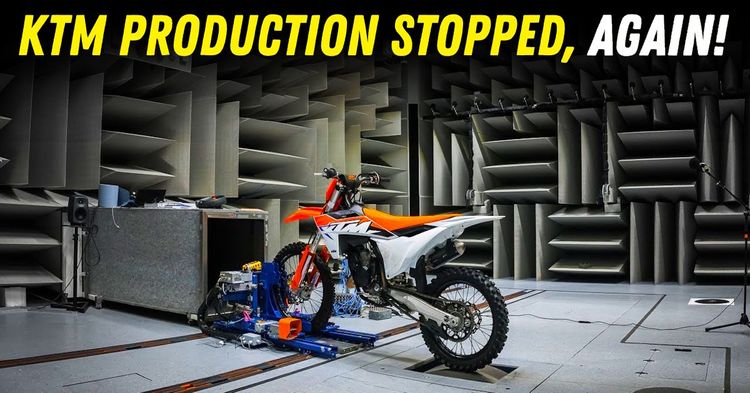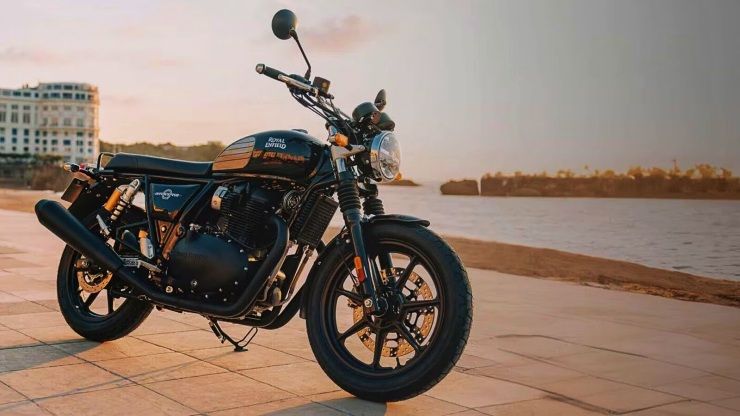Into Bajaj's Plans To Save KTM: New Details Emerge


In a bold strategic maneuver, Bajaj Auto is positioning itself to take majority control of iconic Austrian motorcycle manufacturer KTM, transforming from a silent partner to the driving force behind one of the world's most respected motorcycle brands. This €800 million rescue operation not only saves KTM from potential insolvency but signals Bajaj's growing global ambitions in the premium motorcycle segment.

For Bajaj Auto, the KTM acquisition represents more than just a financial investment - it’s a statement of Indian manufacturing prowess on the global stage. With KTM and Husqvarna brands already constituting an important part of Bajaj's premium motorcycle business in India, the company has steadily built expertise in developing and manufacturing sub-400cc KTM motorcycles at its Chakan facility.
This strategic control allows Bajaj to further consolidate its position in India's growing premium segment while leveraging KTM's performance heritage to compete against domestic rivals like TVS Motors and Hero.

KTM's current predicament stems from severe liquidity issues that forced it into court-supervised restructuring in November 2024. With €1.643 billion in net debt and facing a staggering €1.188 billion EBIT loss on declining revenues, KTM was teetering on the edge of collapse. Bajaj's €800 million package - with €450 million as a secured term loan and €150 million via convertible bonds - arrives just days before a critical May 23, 2025 deadline to pay off 30% of creditor claims.

Founded in 1934 by Hans Trunkenpolz in Mattighofen, Austria, KTM has grown from a small repair shop to Europe's largest motorcycle manufacturer. Its distinctive orange livery, introduced in the 1990s, and "Ready to Race" philosophy have become synonymous with performance motorcycling. With over 260 world championship titles, including 96 MXGP/MX1/MX2 titles and 19 Dakar Rally championships, KTM's racing pedigree is unmatched.
The KTM faithful greeted news of Bajaj's takeover with mixed emotions. While relieved their beloved brand will survive, enthusiasts worry whether the "Ready to Race" ethos might be diluted in favour of more profit-focused machines. KTM's reputation for raw performance motorcycles has cultivated a passionate community that prizes the brand's uncompromising approach to engineering and design.

KTM operates in a fiercely competitive global motorcycle market, facing challenges from both established and emerging players. The most significant competition comes from the Japanese giants, Honda, Yamaha, Kawasaki, and Suzuki, who dominate worldwide with their reliability, vast product range, and strong distribution.
In Europe, KTM contends with premium brands like BMW Motorrad, Ducati, Triumph, and Aprilia, all known for technological innovation, luxury, and motorsport heritage. American brands such as Harley-Davidson and Indian Motorcycle, while traditionally focused on cruisers, are now entering adventure and street segments, intensifying competition.
The landscape is further complicated by the rise of electric motorcycle manufacturers like Zero Motorcycles, Energica, and Damon Motors. As the industry shifts toward electrification, KTM must innovate rapidly to maintain its edge.

In India, KTM faces strong competition from domestic heavyweights such as Royal Enfield, which dominates the mid-capacity segment, as well as TVS Motor Company and Hero MotoCorp, both of which are expanding into the premium space. International collaborations, like BMW’s partnership with TVS and Triumph’s alliance with Bajaj, have also resulted in the local production of premium motorcycles, increasing competition in affordable performance segments.
Despite these challenges, KTM enjoys unique advantages. Its “Ready to Race” ethos, rooted in a deep motorsport legacy, appeals strongly to performance enthusiasts. Aggressive styling, advanced technology, and a youthful brand image help KTM stand out. Furthermore, Bajaj’s manufacturing expertise in India enables KTM to offer high-quality, competitively priced models, particularly in emerging markets.
Bajaj’s stewardship brings several strategic benefits. Its cost-effective engineering and robust supply chain can help KTM undercut rivals without compromising on quality. Joint development efforts can accelerate the launch of new models, including electric bikes and affordable adventure tourers.
Bajaj’s extensive distribution network, especially across Asia, Africa, and Latin America, opens new markets for KTM. Additionally, increased investment in R&D under Bajaj can ensure KTM remains at the forefront of innovation, particularly in electrification and connectivity.
While KTM faces intense competition from both traditional and new-age motorcycle brands, Bajaj’s strategic support positions it well to defend its market share and explore new opportunities, provided it continues to innovate and maintain its high-performance, racing-centric brand identity.

Bajaj has outlined four key steps for KTM's revival: reconstituting the board with stronger governance, implementing a comprehensive turnaround program, expanding joint development initiatives between Austria and India, and exploring strategic partnerships to build sustainable competitive advantage. The immediate goal is to restart production at KTM's Mattighofen facility while strengthening global supply chains.
Looking ahead, Bajaj will likely focus on bringing KTM's smaller-capacity models to global dealerships while carefully evaluating the future of KTM's motorsport programs, including its prestigious MotoGP team and dominant Dakar Rally presence.
The partnership with CF Moto and other manufacturing collaborations will be reviewed as Bajaj seeks to maintain KTM's premium positioning while achieving operational efficiencies.
Through this strategic rescue, Bajaj Auto isn't just saving a motorcycle brand - it’s securing its place in motorcycling's premier league.